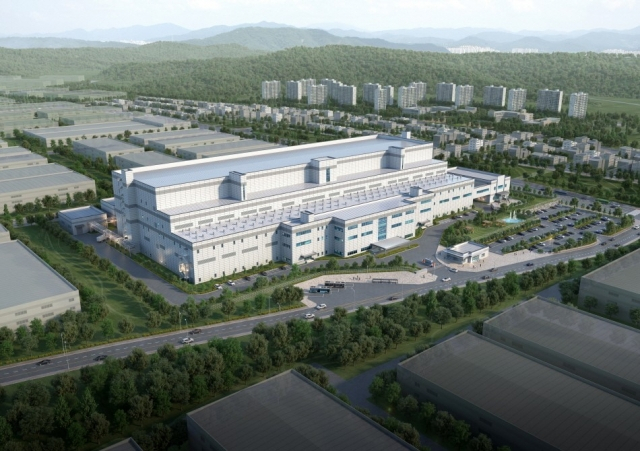
Aerial image of a cathode plant to be set up by a JV between LG Chem and Zhejiang Huayou in South Korea (Courtesy of LG Chem) LG Chem Ltd. and Korea Zinc Co. will set up a joint venture to produce precursor, a key material for one of the core electric vehicle battery ingredient cathodes, next month. The JV is expected to allow LG Chem, the parent company of the global No.2 battery maker LG Energy Solution Ltd., to stably secure precursor and help Korea Zinc expand its new business into one of the world’s fastest-growing industries.LG Chem and Korea Zinc are scheduled to sign a formal deal to establish the JV with a capital stock of 200 billion won ($160 million) in early May, according to the battery industrial sources on Sunday. The world’s top lead and zinc smelter will hold about a 60% stake in the JV, while the South Korean petrochemicals producer will take the rest.The JV is expected to conclude their cooperation on a battery value chain, industry sources said. Korea Zinc produces nickel sulfate for precursors to be manufactured by the JV that will supply the materials to LG Chem. It will make cathodes with the precursors for LG Energy Solution.“The planned JV will complete a battery alliance that connects all production processes including nickel sulfate, precursors, cathode materials and finished products,” said a source at one of the companies. “We aim to foster the precursor JV as a major material producer that generates billions of dollars.”The precursor is a material created by mixing nickel, cobalt and manganese, and is added to lithium to make cathodes. The costs for precursors make up 70% of the expenses of cathode materials, while nickel accounts for more than half of precursor’s ingredients.LG CHEM TO MORE THAN TRIPLE CATHODE MATERIAL OUTPUTThe JV plans to break ground for the precursor plant soon after signing the contract, which will be constructed near Korea Zinc’s Onsan refinery plant in Ulsan, 415 kilometers southeast of Seoul. The factory will supply LG Battery Core Material (LG BCM), LG Chem’s cathode subsidiary, with precursors made with nickel sulfate provided by Korea Energy Materials Co. (Kemco). Korea Zinc's Onsan plant Kemco, in which Korea Zinc and LG Chem hold a 35% stake and 10%, respectively, operates a plant at the Onsan complex. Korea Nickel Co. - Korea Zinc’s nickel metal and nickel-containing alloy smelting, manufacturing and sales subsidiary - smelts mineral nickel, and Kemco processes it. Korea Zinc also produces 1.5 million tons of sulfuric acid a year during the smelting process.The JV is expected to allow LG Chem to secure stable supply, as well as cut costs and time, source of the parent company of LG Energy Solution. LG Chem had been outsourcing the process of nickel sulfate supplied by Kemco.With the JV’s precursors, LG Chem plans to more than triple its annual output of cathode materials to 260,000 tons by 2026 from 80,000 tons last year.KOREA ZINC TO EXPAND BATTERY MATERIALS BUSINESSKorea Zinc aims to accelerate the expansion of its businesses into the battery material sector with the JV. The company has enough money for investment with cashable assets of more than 2 trillion won as of the end-2021 thanks to strong earnings. It has been logging an operating profit margin of higher than 10% a year since 2006.Last year, the company reported an operating profit of 1.1 trillion won as the global economic recovery and supply chain disruption raised prices of zinc and lead. Earnings from by-products such as gold and silver generated during the smelting process are also significant. Sales of silver accounted for 29% of its total revenue last year, compared with 31.8% of zinc.Korea Zinc plans to actively invest in new growth engines. Its Vice Chairman and co-CEO Choi Yun-birm, the third-generation heir to the company’s founder, aims to focus on the development of new growth sectors such as battery materials, instead of its existing core non-ferrous metal smelting business.Choi’s close friendship with LG Group Chairman Koo Kwang-mo, succeeding a close relationship between their fathers - the late LG Chairman Koo Bon-moo and Korea Zinc’s Honorary Chairman Choi Chang-keul – reportedly played an important role in the cooperation also, industry sources speculated.“Korea Zinc has an unwritten rule that any office has home appliances only made by LG,” said a source. “The friendship between the owners may have contributed to the JV.”By Kyung-Min Kangkkm1026@hankyung.comJongwoo Cheon edited this article.
Most Read